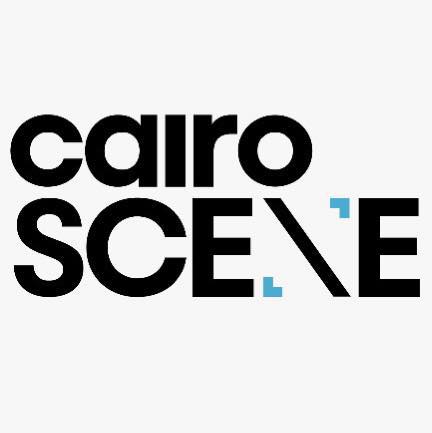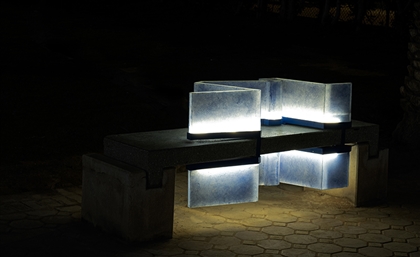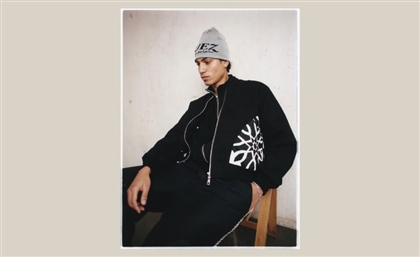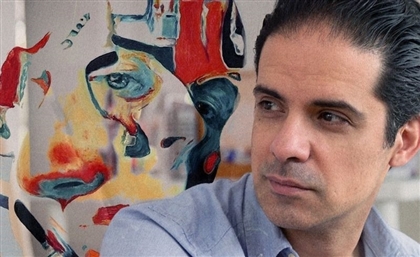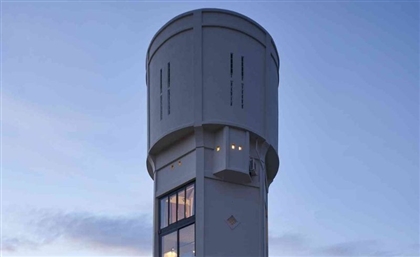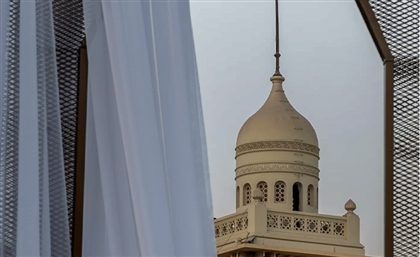This Egyptian-founded Cafe in Paris is a Haven for the Modern Flâneur
New in Paris, FCC (Flâneur Coffee Club x Flâneur Contemporary Collections) blurs the line between café, gallery, and showroom.
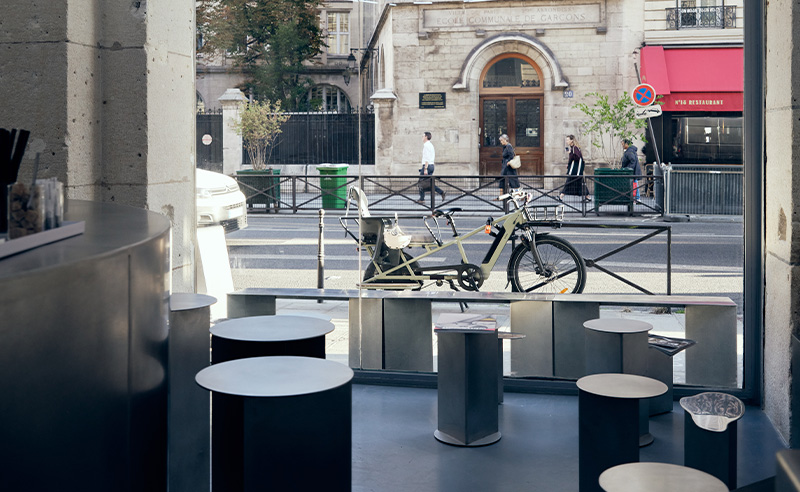
In central Paris, Egyptian entrepreneur Ahmed Kamel propped up a sanctuary for lovers of art, culture, and a finely brewed cup of coffee. FCC (Flâneur Coffee Club x Flâneur Contemporary Collections) is a space that is difficult to define - and that’s precisely the point. Part café, part gallery, part listening room, it’s an immersive showroom where coffee, fashion, music, and design bleed into one another.
Built as a multi-purpose space, FCC functions as a stage for exhibitions, a launchpad for collaborations, and a gathering spot for the city’s creative class. One week might see a capsule fashion drop; the next, a vinyl listening session or an art-led dinner. Each visit offers something different, a reminder that culture doesn’t have to sit still.
-463716cb-9b86-4146-9cec-de1116c31e43.png) “The concept is a third space – a pop-up when it’s quiet, a gallery, a listening room, a party,” Kamel tells CairoScene. “Everything has been designed so the space shifts depending on its purpose.” That sense of movement is built into the architecture. Metallic surfaces, concrete tones, and mirrored details give the space a cinematic sheen, while the lower level – known as The Chapel – draws from the light experiments of artist James Turrell.
Even the sensory details are part of the design. A bespoke hi-fi sound system hums through the space, connecting music to mood. “The whole point is to have a 360 immersive experience,” he explains. “It’s very much this multi-sensory world where coffee, sound, and visuals – we’re even creating an FCC scent so people can associate it with the space.”
“The concept is a third space – a pop-up when it’s quiet, a gallery, a listening room, a party,” Kamel tells CairoScene. “Everything has been designed so the space shifts depending on its purpose.” That sense of movement is built into the architecture. Metallic surfaces, concrete tones, and mirrored details give the space a cinematic sheen, while the lower level – known as The Chapel – draws from the light experiments of artist James Turrell.
Even the sensory details are part of the design. A bespoke hi-fi sound system hums through the space, connecting music to mood. “The whole point is to have a 360 immersive experience,” he explains. “It’s very much this multi-sensory world where coffee, sound, and visuals – we’re even creating an FCC scent so people can associate it with the space.”
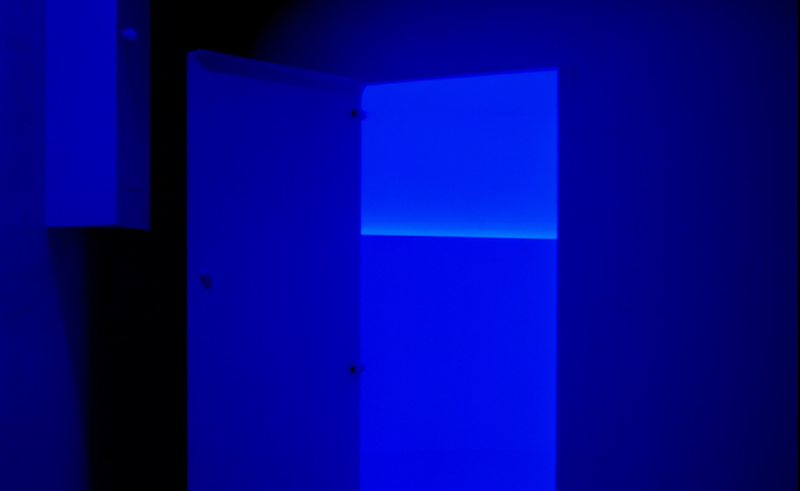 Kamel describes himself as a third-culture kid. His upbringing – split between Cairo, London, Paris, and beyond – threads through the café’s DNA. “I’ve lived all over the place. It’s embedded in my ethos and vision for the space,” he says. “My curatorial direction is about showcasing Middle Eastern artists, whether they’re musicians doing album launches or contemporary artists working in paint, concept, or photography.”
That commitment to representation is personal as much as curatorial. “People usually think if it’s a Middle Eastern guy in Paris, he’s going to open a shawarma shop or a shisha lounge,” he says, half-smiling. “I wanted to challenge that, to redefine what’s possible for someone from my background.”
Kamel describes himself as a third-culture kid. His upbringing – split between Cairo, London, Paris, and beyond – threads through the café’s DNA. “I’ve lived all over the place. It’s embedded in my ethos and vision for the space,” he says. “My curatorial direction is about showcasing Middle Eastern artists, whether they’re musicians doing album launches or contemporary artists working in paint, concept, or photography.”
That commitment to representation is personal as much as curatorial. “People usually think if it’s a Middle Eastern guy in Paris, he’s going to open a shawarma shop or a shisha lounge,” he says, half-smiling. “I wanted to challenge that, to redefine what’s possible for someone from my background.”
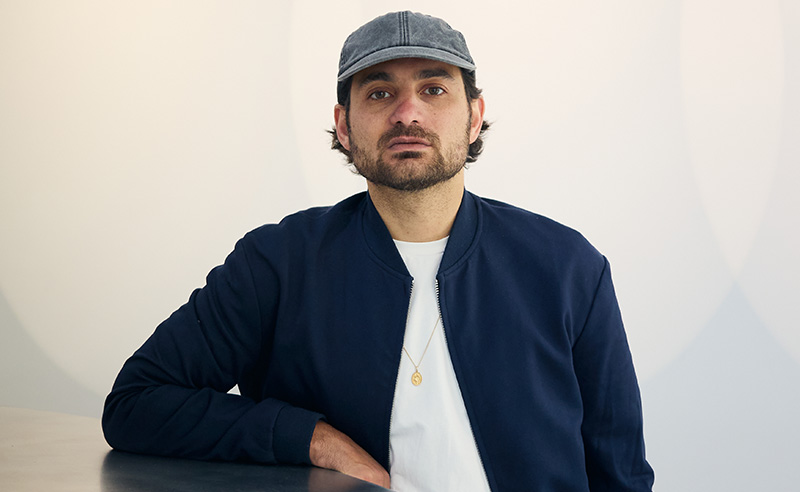 His background, though, is far from traditional hospitality. After years in corporate consulting, at KPMG, Deloitte, and PwC, he began focusing on experiential design and destination building across the Middle East. FCC marks his first independent project, a chance to scale that vision down while retaining its ambition.
“Coming from hospitality and experiential design, I spent years activating destinations for others,” he says. “FCC is me doing that for myself where I could finally let my imagination run free.”
FCC’s program will evolve organically, guided by a network of collaborators across music, fashion, and art. The space plans to host around four exhibitions a year, with capsule installations and performances layered between. Recent highlights include a launch with Belgian eyewear label KOMONO, an Art Basel gathering with Axel Huynh, and an upcoming showcase of leading Iranian designers in November. “My curatorial direction is about self-liberation, cross-culturalism, and coexistence,” he says. “The idea is that you leave your preconceived notions at the door – artists, venture capitalists, designers – everyone meets on the same ground.”
As FCC settles into the Paris scene, plans for future outposts are already forming – one immersive showroom per city, each acting as a “headquarters” for local creativity. But for now, the focus remains on the present moment: the conversations sparked over coffee, the unplanned collaborations, the fluid rhythm of the space itself.
In a city known for its galleries, FCC offers a space that feels open-ended. Somewhere between coffee and culture, between sound and silence, it’s less a café than a conversation in motion.
His background, though, is far from traditional hospitality. After years in corporate consulting, at KPMG, Deloitte, and PwC, he began focusing on experiential design and destination building across the Middle East. FCC marks his first independent project, a chance to scale that vision down while retaining its ambition.
“Coming from hospitality and experiential design, I spent years activating destinations for others,” he says. “FCC is me doing that for myself where I could finally let my imagination run free.”
FCC’s program will evolve organically, guided by a network of collaborators across music, fashion, and art. The space plans to host around four exhibitions a year, with capsule installations and performances layered between. Recent highlights include a launch with Belgian eyewear label KOMONO, an Art Basel gathering with Axel Huynh, and an upcoming showcase of leading Iranian designers in November. “My curatorial direction is about self-liberation, cross-culturalism, and coexistence,” he says. “The idea is that you leave your preconceived notions at the door – artists, venture capitalists, designers – everyone meets on the same ground.”
As FCC settles into the Paris scene, plans for future outposts are already forming – one immersive showroom per city, each acting as a “headquarters” for local creativity. But for now, the focus remains on the present moment: the conversations sparked over coffee, the unplanned collaborations, the fluid rhythm of the space itself.
In a city known for its galleries, FCC offers a space that feels open-ended. Somewhere between coffee and culture, between sound and silence, it’s less a café than a conversation in motion.
Trending This Week
-
Feb 16, 2026







